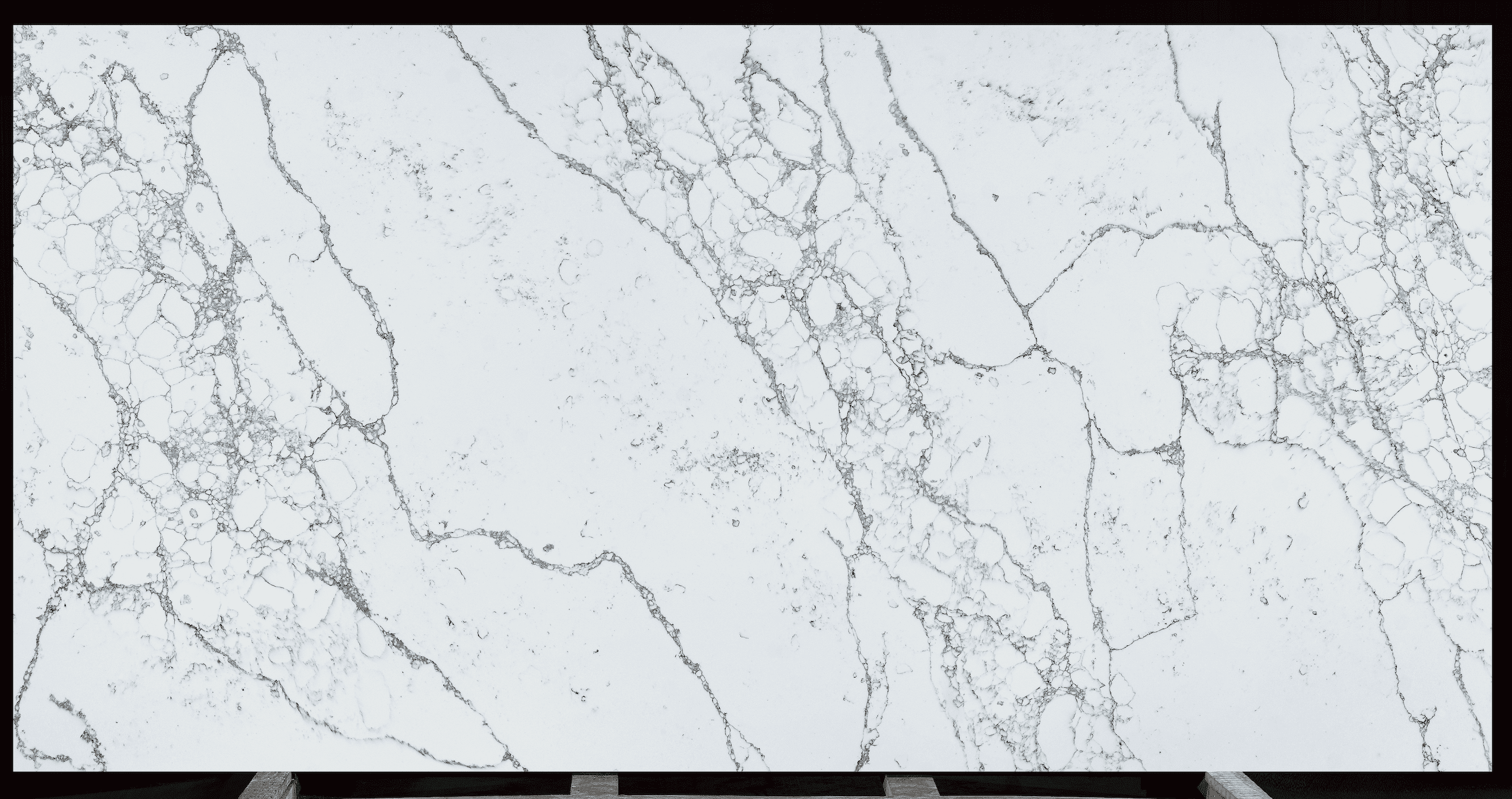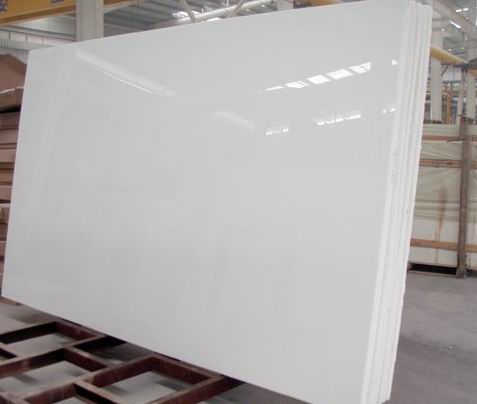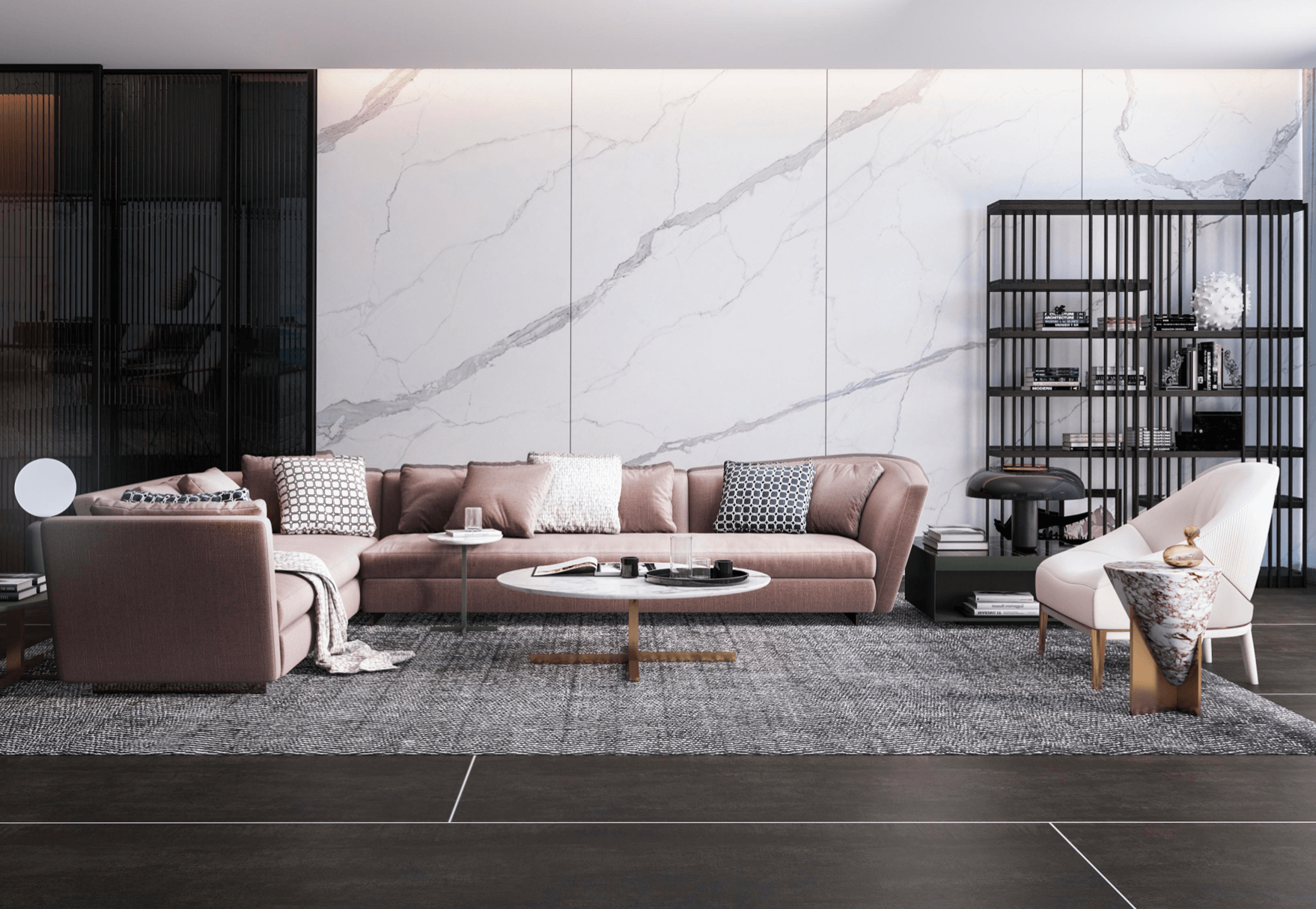Kitchen Countertops
There are numerous materials available for kitchen countertops, but Countertop Kingdom will recommend only a select few of the most popular options. These popular materials are the best choices to help you generate revenue efficiently.
You have traveled to China to source materials for your countertop business, aiming to achieve continuous profitability and long-term success, correct?
Countertop Kingdom recommends the following materials for kitchen countertops:
- Quartz Surface
- Nano Glass
- Solid Surfaces
- Porcelain Slabs (Sintered Stone)
Kitchen Countertops materials: 1. Quartz Surface
Quartz Surface is currently the most common material used for kitchen countertops. Engineered quartz boasts properties such as exceptional hardness, resistance to scratching, minimal water absorption, stain resistance, low maintenance, non-porosity, and heat resilience.
Since 2008, our company has been exporting quartz slabs and countertops manufactured in mainland China to buyers worldwide. With over a decade of experience in exporting these products, we have gained a reputation for quality and reliability among consumers globally.
In recent years, the production standards of Chinese factories have significantly improved. While there may have been minor quality issues initially, these have been addressed over time. Now, the industry is moving towards more attractive and diverse designs.
I believe the future direction of quartz slabs will be similar to that of ceramics. There will be a need to introduce new designs periodically, much like the fashion industry, to continually set new trends. It's quite fascinating!
2. Nano glass
Nano glass is long-lasting, stain-resistant, and environmentally friendly. It is also known as a crystallized glass panel. Quartz sand is used in the production of nano glass, but it is created differently from engineered quartz. Nano glass is formed by melting quartz sand and other materials at high temperatures (above 1000 degrees Celsius), then cooling and crystallizing them. This process results in a beautiful and clear surface that shines brightly like glass, hence the name "nano glass."
Nano glass stone, is produced by only a few manufacturers worldwide, with the majority located in mainland China. This material has high hardness and an almost zero water absorption rate, making it highly resistant to staining. Additionally, modern nano glass stone can have various patterns printed on its surface, similar to those on sintered stone or printed quartz, mimicking natural stone designs. Nano glass stone is primarily used for walls and countertops and can even be used to create columns.
If you are interested in purchasing nano glass stone or want to learn more about this product, please feel free to contact us.
3. Solid Surfaces
When it comes to solid surface materials, most people are familiar with the Corian brand by DuPont, known for its pure acrylic sheets. In China, several factories produce pure acrylic products comparable to Corian. Some Chinese factories also supply composite acrylic, though pure acrylic can be molded into various shapes, unlike composite acrylic. However, composite acrylic is a cost-effective option for kitchen countertops and meets consumer needs.
If you are interested in purchasing Chinese-made pure acrylic or composite acrylic products, please feel free to contact us.
DuPont has acquired the Montelli factory in China, now part of DuPont and located in Zhaoqing, Guangdong. The production standards in China are on par with the world's best, such as Corian. You can confidently source pure acrylic products from China.
One advantage of solid surfaces is their softness, making them easy to repair when scratched. Simply use sandpaper to rub the scratched area back and forth, and the scratch will be easily fixed. Additionally, solid surfaces are easy to work with and can be cut using woodworking machinery.
The popular thickness for solid surfaces is 12.5mm, and they are excellent at resisting stains. Corian has been popular for many years and still holds a significant market share because it is a product beloved by consumers.
4. Porcelain Slabs
Sintered stone, also known as porcelain slabs, is produced using kilns. This new countertop material has grown in popularity in recent years due to its versatility; it can be used indoors or outdoors, and on counters, walls, floors, etc. It boasts high hardness and scratch resistance.
However, its primary disadvantage is the challenge in production; it can break during the fabrication process if not handled carefully.
There are several renowned brands in this industry, such as Laminam, Lapitec, and Neolith.
In China, many factories use Italian production equipment to manufacture sintered stone, resulting in improved quality. However, it is commonly believed that Chinese factories cannot acquire the latest, most advanced equipment from Italy. Consequently, Chinese-made sintered stone is not seen as equal to Italian sintered stone. Despite this, the quality of sintered stone produced in China now meets the standards of most fabricators and end consumers worldwide. Additionally, Chinese products are significantly more affordable compared to high-end Italian and Spanish brands.
What are your thoughts on this?
In addition to the above four materials, there are still many kinds of materials that can be utilised for kitchen countertops; but Countertop Kingdom generally suggests the above four materials for our overseas customers to pick from.
You are welcome to contact us for additional information, we will arrange samples or related price information for you.
- Countertop Kingdom
- Kitchen Countertops



